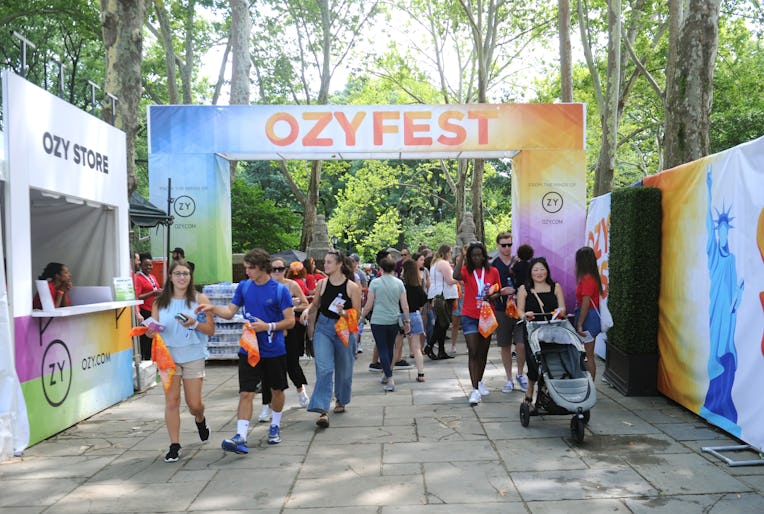Even by Scammy Digital Media Company Standards, Ozy Is a Doozy
Look on my absolutely unbelievable bullshit, ye Mighty, and despair!

It is generally safe to assume that most once-buzzy digital media upstarts are houses of cards built on shaky valuations and inflated audience numbers that no one should invest in expecting huge returns (not us, though, we’re different). But the trials and tribulations of Ozy — the media and entertainment company dedicated to “the New and the Next” most famous for its annual OZY Fest featuring New and Next keynote speakers such as Hillary Clinton — are so outrageous they simply must be applauded. A recent piece by Ben Smith in the New York Times suggests that Ozy — which had reportedly raised more than $83 million in funding from investors like Laurene Powell Jobs and valued itself at $159 million by April 2020 — is, at best, extremely skilled at massaging the truth, and at worst, built on outright lies.
Let us list some of the ways, as detailed in the story:
- On a call with would-be investor Goldman Sachs, Ozy’s co-founder and chief operating officer Samir Rao impersonated a YouTube exec in order to wax poetic about Ozy’s CEO Carlos Watson and extol the company’s performance on YouTube. When Goldman Sachs and YouTube realized what had happened, Ozy said that Rao had been experiencing a mental health crisis. Fair enough.
- Ozy touts an audience of 50 million monthly unique users, but Comscore, the industry standard for measuring website traffic, has numbers closer to the 230,000 to 2.5 million range. Ozy said that its self-reported stats include impressions on social media platforms, newsletters (“more than 20 million subscribers”), TV, and podcasts. At Gawker, we also count scrolling right past our content on social media — you still looked.
- A show Watson hosts for Ozy has been promoted by the company as “Amazon Prime’s First Talk Show,” despite being uploaded directly to the Amazon platform by Ozy itself, so it’s sort of like if I uploaded videos of myself performing spoken word while eating and called it “Amazon Prime’s First Poetry Mukbang Show.” Amazon recently made Ozy take down billboards promoting Watson’s show as such.
When I think about how often I’ve seen an Ozy post out in the wild (never) and how often I’ve wondered how Ozy manages to book names as big as John Legend, Joe Biden, and Laverne Cox for its OZY Fest (more than a few times), none of this is particularly surprising, although the pretending-to-be-a-YouTube-exec-to-convince-Goldman-Sachs-to-invest-$40-million bit shows an impressive level of commitment for a company not too committed to accomplishing much else.
In response to the article, Watson — whose Twitter profile header as of just a few hours ago, but not anymore, still promoted his show as “Amazon Prime’s First Talk Show” — tweeted that the piece is a “ridiculous hitjob [sic].”
Watson also alleged, according to accompanying screenshots of an internal memo he sent to his team, that Smith introduced Watson to Jonah Peretti, the CEO of BuzzFeed — where Smith worked at the time as editor-in-chief of BuzzFeed News — to talk about acquiring Ozy in 2019. This was two years after BuzzFeed News published a report revealing that Ozy was among digital publishers who were buying cheap, fake traffic, as Smith himself acknowledged in the Times piece. A digital media company seriously considering buying another digital media company after the former had exposed that the latter engaged in dubious practices and puffed-up numbers? That’s just called good business!